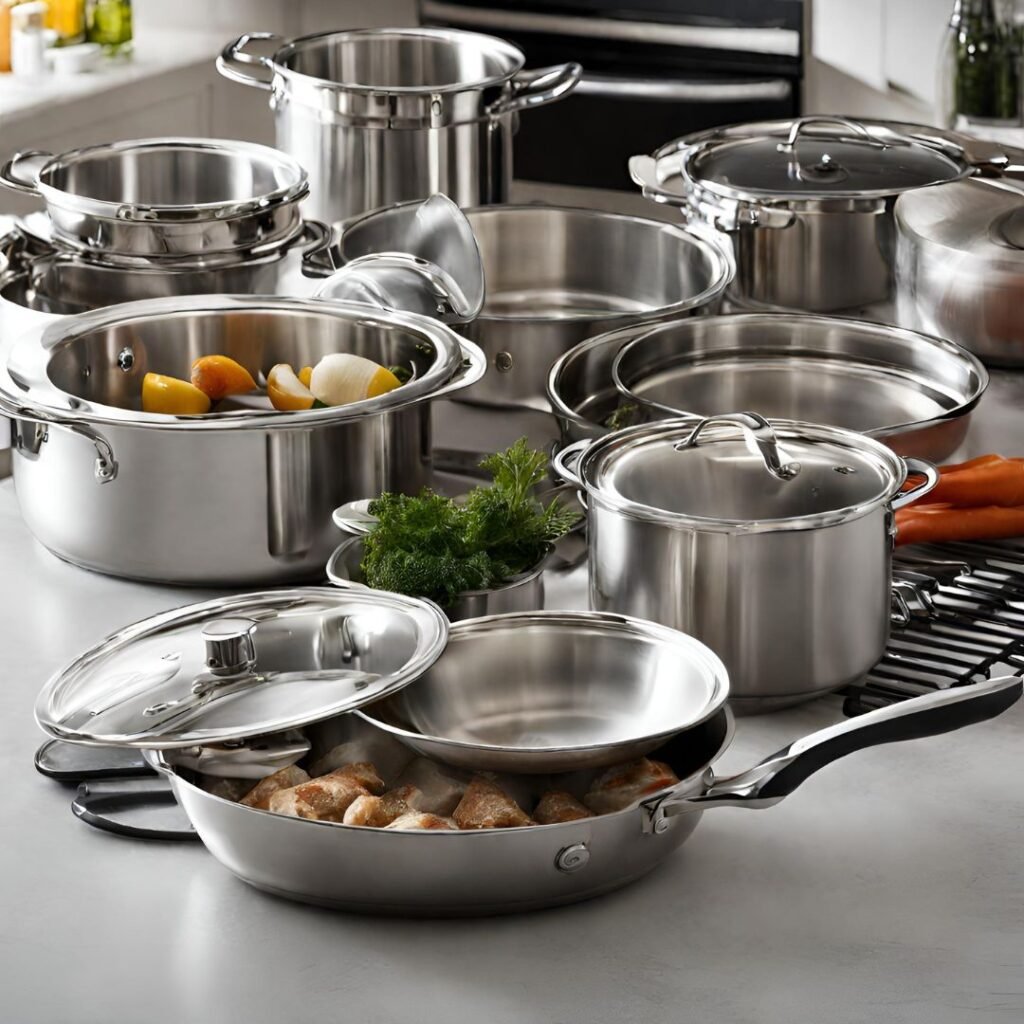Table of Contents
Introduction
Stainless steel is a popular choice for cookware because it is durable, versatile, and relatively affordable. It is also a good choice for everyday cooking because it is easy to clean and maintain.
In this blog post, we will discuss the advantages and disadvantages of using stainless steel cookware for everyday cooking. We will also provide tips on how to use and care for stainless steel cookware.
Advantages of Stainless Steel Cookware
There are many advantages to using stainless steel cookware for everyday cooking, including:
- Durability: Stainless steel cookware is very durable and can withstand years of heavy use. It is also resistant to rust and corrosion.
- Versatility: Stainless steel cookware can be used for a variety of cooking tasks, including searing, browning, braising, and simmering. It is also oven-safe.
- Ease of cleaning: Stainless steel cookware is easy to clean by hand or in the dishwasher.
- Affordability: Stainless steel cookware is relatively affordable, especially when compared to other types of cookware, such as copper or cast iron.
Disadvantages of Stainless Steel Cookware
There are a few disadvantages to using stainless steel cookware for everyday cooking, including:
- Hot spots: Stainless steel cookware can develop hot spots, which can cause food to burn or stick. It is important to use medium to medium-low heat when cooking with stainless steel cookware and to stir food frequently.
- Reactivity: Stainless steel can react with acidic foods, such as tomatoes and lemons, causing them to discolor. To prevent this, you can use a non-reactive cooking surface, such as enamel or ceramic, when cooking with acidic foods.
- Weight: Stainless steel cookware can be heavy, especially when it is filled with food. This can make it difficult to maneuver, especially for people with limited mobility.
Tips for Using and Caring for Stainless Steel Cookware

Here are some tips for using and caring for stainless steel cookware:
- Preheat the pan: Preheat the pan before adding food to help prevent sticking.
- Use medium to medium-low heat: Stainless steel cookware can develop hot spots, so it is important to use medium to medium-low heat and to stir food frequently.
- Add a small amount of fat: Adding a small amount of fat, such as oil or butter, to the pan can help to prevent sticking.
- Clean the pan immediately after use: This will help to prevent food from sticking and staining the pan.
- Use a mild dish soap and warm water: To clean stainless steel cookware, use a mild dish soap and warm water. Avoid using abrasive scrubbers or scouring pads, as these can scratch the surface of the pan.
Is Stainless Steel Good for Everyday Cooking?
In general, stainless steel is a good choice for everyday cooking. It is durable, versatile, and easy to clean and maintain. However, it is important to be aware of the potential disadvantages of stainless steel cookware, such as hot spots, reactivity, and weight.
If you are looking for a durable and versatile cookware option that is good for everyday cooking, stainless steel is a good choice. Just be sure to follow the tips above to get the most out of your stainless steel cookware.
Conclusion
Stainless steel is a popular choice for cookware because it is durable, versatile, and relatively affordable. It is also a good choice for everyday cooking because it is easy to clean and maintain.
When using stainless steel cookware, it is important to preheat the pan before adding food, use medium to medium-low heat, add a small amount of fat to the pan, and clean the pan immediately after use.
If you are looking for a durable and versatile cookware option that is good for everyday cooking, stainless steel is a good choice.
